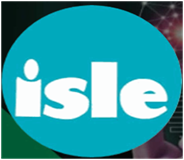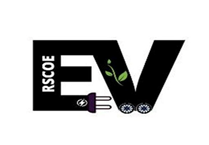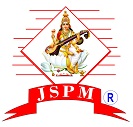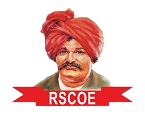Professional Bodies
IEEE Power and Energy Society (PES)
Name of Faculty Coordinator: Assistant Prof. Manjusha Kanawade
Aim -:The IEEE Power & Energy Society (PES) aims to serve as the leading global source of scientific and engineering knowledge in the field of electric power and energy, dedicated to the betterment of society and the professional growth of its members.
Objectives
1. Advance knowledge and research in power and energy systems.
2. Promote innovation and technological development.
3. Facilitate collaboration among academia, industry, and professionals.
4. Foster global partnerships for addressing energy challenges.
Outcomes
1. Enhanced reliability, efficiency, and sustainability of power systems.
2. Development and adoption of innovative energy technologies.
3. Strengthened professional skills and technical capabilities of members.
4. Creation of collaborative and practical solutions for global energy needs.

Indian Society for Technical Education (ISTE)
Name of Faculty Coordinator: Mr. P. S. Phutane
Aim - To promote high-quality technical education and training to produce skilled engineers and technicians needed by industry and society.
Objectives
1. To provide quality training programmes for teachers and administrators of technical institutions.
2. To enable faculty and administrators to regularly update their knowledge and skills in their respective fields.
3. To enhance teaching–learning practices through continuous professional development.
4. To contribute towards the production of highly skilled professional engineers and technicians.
5. To meet the requirements of industry and other organizations through competent manpower development.
Outcomes
1. Faculty members and administrators enhance their technical knowledge and teaching skills through regular training programs.
2. Adoption of modern and effective teaching–learning practices in technical institutions.
3. Development of highly skilled and industry-ready engineers and technicians.
4. Promotion of research, innovation, and problem-solving abilities among faculty and students.
Indian Society of Lighting Engineers (ISLE)
Name of Faculty Coordinator: Ms. Rashmi A. Panherkar
Aim -:The aim of ISLE is to advance the field of illumination engineering by promoting education, research, and innovation, while fostering industry standards and sustainable lighting practices for the benefit of society and professional development of engineers
Objectives
1. Promote illumination engineering through education, research, and technical publications.
2. Foster industry standards, collaborations, and best practices in lighting engineering.
3. Support the career growth and professional development of young engineers.
4. Enhance lighting practices to benefit public safety, efficiency, and sustainability.
Outcomes
1. Improved illumination engineering knowledge and research among professionals and students.
2. Adoption and development of industry standards and sustainable lighting solutions.
3. Strengthened professional skills and career opportunities for young engineers.
4. Increased awareness and application of efficient and innovative lighting practices for societal benefit.

Electric Vehicle (EV) Club
Name of Faculty Coordinator: Mr. R. S. Ankushe & Ms. A. S. Udapurkar
Aim -:The world rapidly shifting towards E-Mobility, the EV Club aims to support and facilitate this transition to electrification.
Objectives
1. Promote technical and technological advancements to optimize existing products and meet evolving market demands.
2. Enhance student knowledge and understanding of electric vehicles (EVs) to tackle complex technological challenges.
3. Organize workshops, expert talks, and interactive sessions to spark interest in innovation and practical applications.
Outcomes
1. Development of optimized and market-ready EV products.
2. Enhanced understanding of advanced EV technologies among students.
3. Cultivation of innovation-driven mindset and technical skills in students.
4. Strengthened partnerships and collaboration with the EV industry, promoting research and practical learning.


